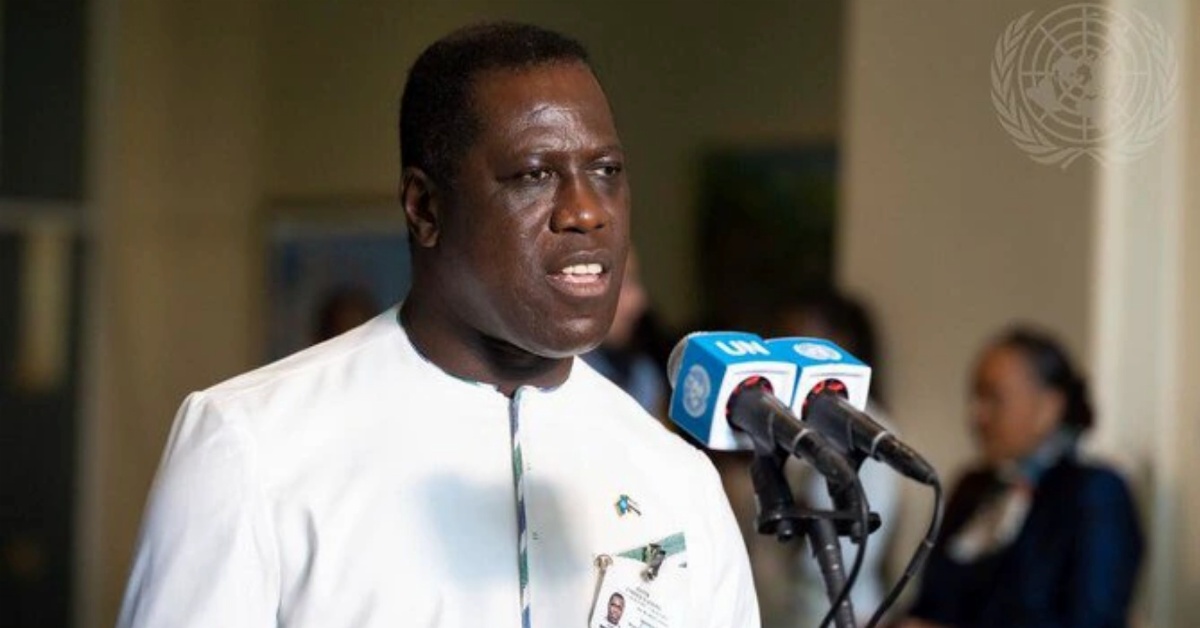Sierra Leone’s Foreign Minister, David Francis, has declared that the world must brace itself for a new status quo, where all nations are given a voice, following the resolution of the war in Ukraine.
In an exclusive interview with Arab News on Tuesday, Francis emphasized that historically marginalized, excluded, and underrepresented countries are now asserting, “Our voice must be heard.”
Speaking at the United Nations headquarters in New York, Francis expressed this sentiment after Sierra Leone secured a non-permanent seat on the UN Security Council. This influential body is responsible for maintaining international peace and security. Alongside Sierra Leone, Slovenia, Algeria, Guyana, and the Republic of Korea were also elected to serve two-year terms commencing on January 1, 2024.
The Security Council consists of 15 members, with five permanent members known as the P5 – China, France, Russia, the United Kingdom, and the United States. Each P5 member possesses veto power over council resolutions and decisions. The remaining ten non-permanent members are elected by the General Assembly, with a focus on representing the geographical distribution of member states by region.
The call for Security Council reforms has gained momentum, urging greater representation of nations from the Global South and empowering them to play a more substantial role in addressing their own challenges.
Francis believes that 2024 will be a pivotal year for Security Council reforms, highlighting the P5’s genuine commitment to inclusivity, particularly for long-overlooked regions such as Africa.
However, concerns remain regarding the willingness of the permanent members to grant the African Union a permanent seat on the council. The outcome of reforms, short of this achievement, is also being questioned.
When asked about these concerns, Francis acknowledged the complexities of global geopolitics, including the Ukraine crisis, but emphasized the significance of solidarity within the Global South.
He expressed confidence in discussions held with foreign ministers from Western countries, including the UK, US, France, and China, as well as conversations with Russian Foreign Minister Sergey Lavrov. These conversations have revealed a general consensus that the time for Security Council reform has arrived to rectify historical injustices and underrepresentation, particularly for regions like Africa.
The newly elected council members will replace Albania, Brazil, Gabon, Ghana, and the UAE, whose two-year terms will conclude on December 31. They will join existing non-permanent members Ecuador, Japan, Malta, Mozambique, and Switzerland in shaping global security and peace initiatives.
As the world anticipates these changes, the aspirations of marginalized nations to have their voices heard and their concerns addressed are poised to reshape the international landscape.


 Post a comment
Post a comment








